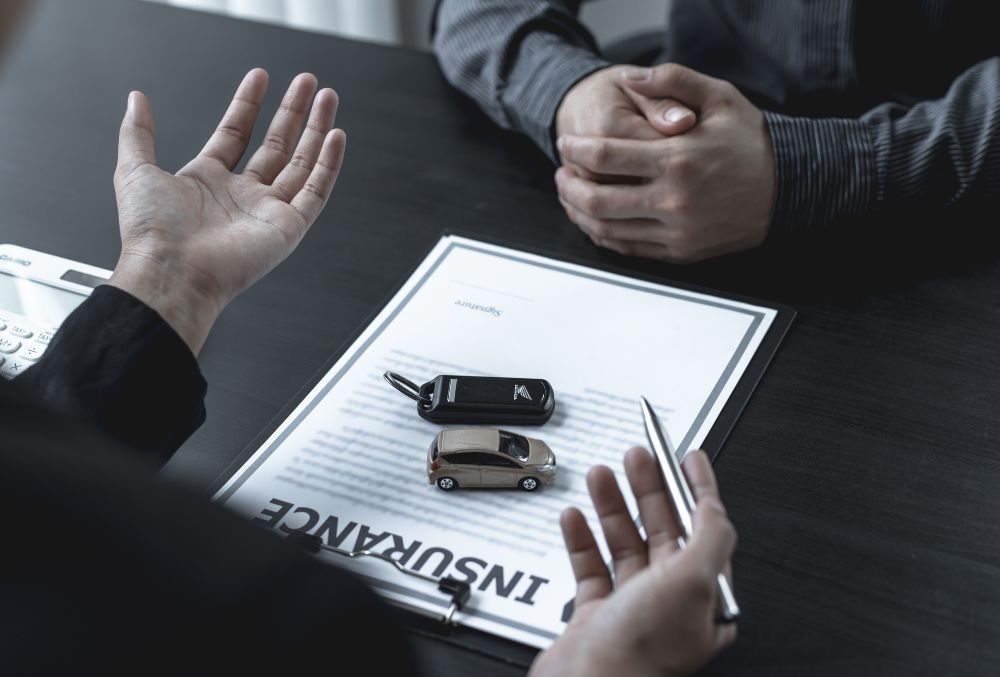Commercial Auto Insurance: What It Covers and Why Your Business Needs It

Whether you run a small delivery service, own a fleet of vehicles, or use your personal car for business errands, commercial auto insurance is a must-have. Personal car insurance simply isn’t designed to cover the risks and responsibilities that come with using a vehicle for business purposes.
This comprehensive guide explains what commercial auto insurance is, what it covers, who needs it, how much it costs, and how to choose the right policy for your business.
What Is Commercial Auto Insurance?
Commercial auto insurance is a type of policy that provides financial protection for vehicles used for business purposes. It covers a variety of risks including accidents, property damage, injuries, and liability when your company vehicle is involved in an incident.
Unlike personal auto insurance, which only covers personal use, a commercial policy is tailored for business use, which typically involves more mileage, more risk, and sometimes multiple drivers.
Who Needs Commercial Auto Insurance?
You likely need commercial auto insurance if you:
-
Own or lease vehicles for business use
-
Have employees who drive company vehicles
-
Use your personal vehicle to conduct business
-
Transport tools, products, or clients
-
Operate a delivery or service-based business
-
Drive to multiple job sites regularly
Examples of professions that need commercial auto coverage:
-
Contractors and construction workers
-
Real estate agents
-
Landscapers and lawn care providers
-
Food delivery drivers and caterers
-
Rideshare and delivery service drivers (with specific endorsements)
-
Plumbers, electricians, HVAC technicians
-
Sales professionals who travel frequently
Even if you’re a sole proprietor or freelancer, you might still need a commercial policy if you use your car for business regularly.
What Does Commercial Auto Insurance Cover?
A good commercial policy includes the following types of coverage:
1. Liability Coverage
Pays for property damage and injuries you cause to others in an accident while driving for business.
2. Collision Coverage
Covers repair or replacement costs if your vehicle is damaged in a collision, regardless of fault.
3. Comprehensive Coverage
Protects against non-collision events like theft, vandalism, fire, and weather-related damage.
4. Uninsured/Underinsured Motorist Coverage
Covers you if an at-fault driver has no insurance or insufficient coverage.
5. Medical Payments (MedPay) or Personal Injury Protection (PIP)
Pays for medical expenses for you and your passengers after an accident.
6. Hired and Non-Owned Auto (HNOA) Coverage
Covers liability for vehicles your business doesn’t own, like employee-owned cars or rental vehicles used for work.
7. Trailer and Equipment Coverage (if applicable)
Useful if you tow equipment or haul tools and machinery.
Commercial Auto Insurance vs. Personal Auto Insurance
Here’s a quick side-by-side comparison:
| Feature | Personal Auto Insurance | Commercial Auto Insurance |
|---|---|---|
| Use Case | Personal errands & commuting | Business activities |
| Drivers Covered | Named drivers | Employees and other authorized users |
| Liability Limits | Lower | Higher (to match business risks) |
| Vehicle Types | Personal vehicles only | Vans, trucks, trailers, fleets |
| Claims Support | Standard | Business-specialized claims handling |
Bottom line: If you’re using a vehicle for anything beyond basic commuting or personal errands, a commercial policy is the safer—and often required—choice.
How Much Does Commercial Auto Insurance Cost?
Commercial auto insurance costs vary depending on several factors:
-
Type of vehicle (trucks, vans, cars, etc.)
-
Number of vehicles insured
-
Business location
-
Driving history of the insured drivers
-
Coverage limits and deductible
-
Industry risk level
-
Frequency and distance of driving
On average, small businesses pay $1,200 to $2,500 per vehicle annually, but rates can be higher or lower depending on your needs.
Ways to Save on Commercial Auto Insurance
Here are smart ways to reduce your premium:
✔ Compare Quotes
Don’t settle for the first offer. Get multiple quotes from top insurers to find the best coverage at the best price.
✔ Bundle Policies
Combine commercial auto with general liability, property, or business owner’s policies (BOP) for a multi-policy discount.
✔ Maintain Clean Driving Records
Safe drivers mean lower risks—and lower premiums.
✔ Choose Higher Deductibles
Opting for a higher deductible can reduce your monthly premium (just be sure you can afford the out-of-pocket cost if needed).
✔ Use Telematics or Fleet Monitoring
Some insurers offer discounts if you install GPS tracking or safe driving devices on your vehicles.
How to Get Commercial Auto Insurance
Step 1: Assess Your Needs
List your vehicles, who drives them, how they’re used, and what kind of goods (if any) they transport.
Step 2: Gather Information
Have the following ready:
-
Vehicle info (make, model, VIN)
-
Driver details (licenses, driving history)
-
Business details (type, location, years in operation)
Step 3: Get Multiple Quotes
Reach out to well-known commercial insurers like:
-
Progressive Commercial
-
GEICO Commercial
-
State Farm
-
Nationwide
-
Travelers
-
The Hartford
Step 4: Compare Coverage Carefully
Look beyond price. Review what’s included, limits, deductibles, and exclusions. Make sure it fits your real-world business needs.
Step 5: Purchase and Review Annually
Buy your policy and set a reminder to review it every year—or sooner if your business expands or changes.
Common Mistakes to Avoid
-
Assuming personal auto insurance is enough for business use
-
Underinsuring vehicles to save money upfront
-
Not updating your policy when you hire new drivers or purchase new vehicles
-
Skipping uninsured motorist coverage, especially in states where it’s common
-
Failing to compare quotes annually
Final Thoughts
Commercial auto insurance is more than just a legal requirement—it’s a vital layer of protection for your business. Whether you’re hauling tools, making deliveries, or sending employees out on the road, having the right coverage keeps you financially secure and legally compliant.
By understanding your risks, comparing policies, and working with the right insurer, you can build a policy that protects your people, your property, and your peace of mind.
